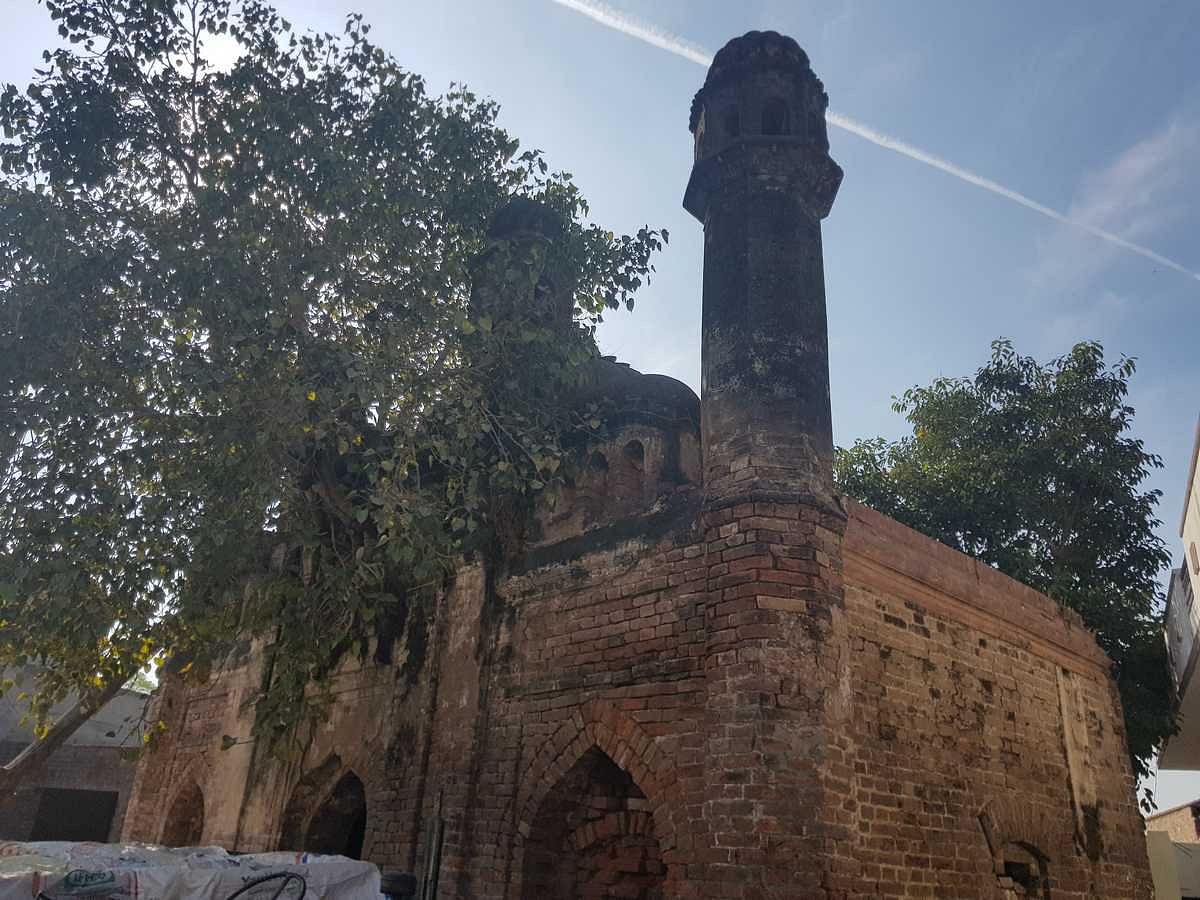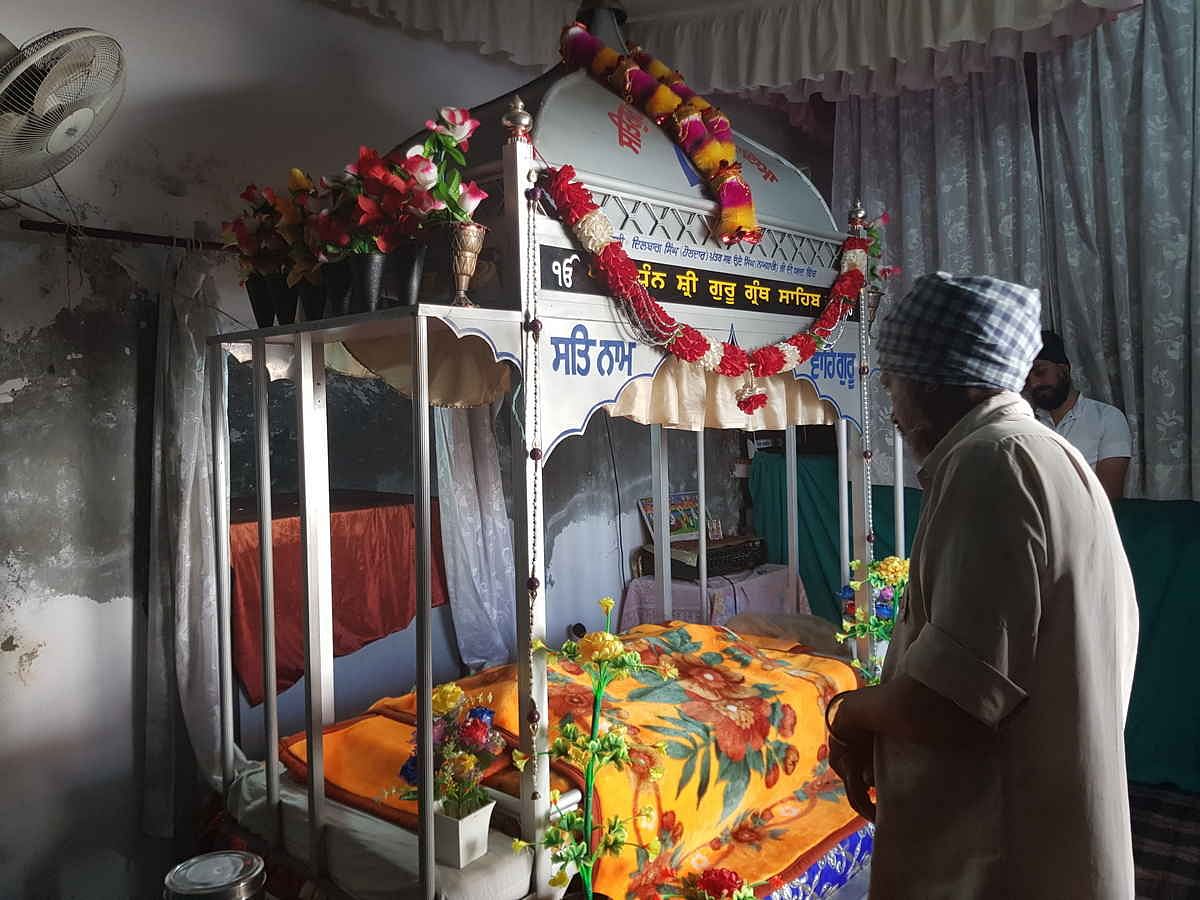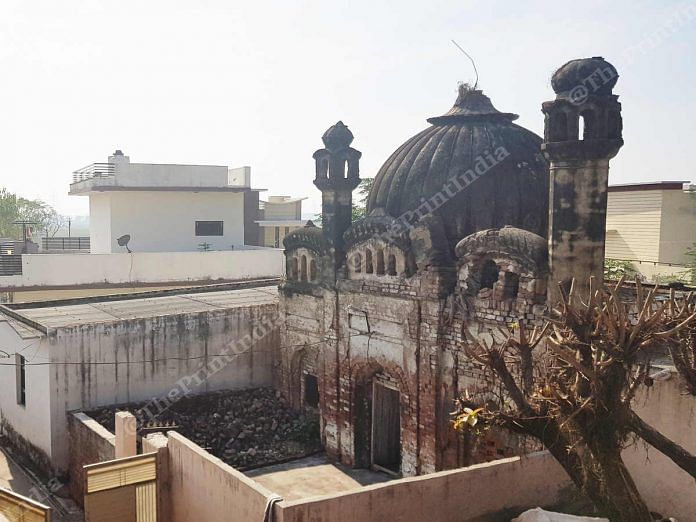Hedon Bet, Ludhiana: In the skyline of Hedon Bet, it’s hard to miss the imposing century-old mosque that lies nestled right at the centre of the interior village in Ludhiana. The crumbling walls of the mosque share their boundaries with a temple.
But it’s not just walls that the mosque shares with the temple. It also shares its ethos and history.
Not a single Muslim has lived in this Punjab village since Partition. But the mosque, which lies abandoned since the cataclysmic 1947 event, is taken care of by Sikhs and Hindu villagers. To them, the place of faith is sacred.
“It’s the house of God. And we are happy and blessed to take care of it. Every day, we light lamps here. On Thursdays, we cook parsad and distribute it,” said Prem Singh, a 54-year-old Sikh resident of the village.
Singh said he took over the caretaker responsibilities of the mosque in 2009 from a Sufi saint who took care of the mosque for decades.
“I don’t read or write Urdu. I don’t know anything from the Quran. But before that Saint died, he made me remember some sentences which I think are from the Quran. I recite these in a loud voice every morning and evening in the mosque. It’s a place of worship and I am blessed I do this duty,” said Singh.
For the villagers, religion is not something that divides them. “Why should a place of faith, of whichever religion, be shut down,” asked Kulwant Kaur, who helps in organising langar (community kitchen) every Thursday at the mosque.
Every year, the villagers also organise an annual festival there. “For us, it is seva (service). Whether it is done in a gurdwara or mandir or this masjid, finally it is service of that one God. And it is this seva that ensures no tragedy befalls this village,” said Balwinder Singh.
The villagers are ever ready to cooperate in the upkeep of the mosque.
Also read: India’s new Muslim flaunts Tricolour, sings national anthem & isn’t afraid to look Muslim
Other mosques too
This isn’t the only such mosque in Punjab. Across the state, several mosques are being taken care of by Hindus and Sikhs, said Tayyab Hussain Falahi, the education department in-charge of the Punjab Waqf Board.
“Before 1990, the Waqf Board was issuing licences to individuals to keep the mosques and dargahs across Punjab functional. But a fatwa was issued that licences could not be given to run mosques. After that, hundreds of mosques became abandoned overnight,” said Falahi.
The Waqf lists over a thousand mosques and 61 dargahs on its land across the state.
“Now, many of these mosques are not with us. These are taken care of by Muslim families, if there are any, in the village. But some mosques have been usurped and in some cases these are used by the villagers to tie animals or store houses,” said Falahi.
‘Sanctity of a place’
Prem Singh took ThePrint around to some other mosques in nearby villages that have been lying abandoned since Partition. First was Salana Bet, which has a mosque similar in architecture to the one in Hedon Bet.

“This mosque is in the middle of the village and was probably abandoned during Partition. It is a smaller mosque than Hedon Bet and was probably used only locally by the Muslims in the village,” said Singh.
“Land is a premium asset now but no one in the village has tried to grab the mosque land,” said Pritam Singh, a local resident who owns most of the land around the Salana mosque.
Prem Singh said he wishes somebody in Salana Bet would accept the responsibility of making the mosque functional.
He accompanied ThePrint to another mosque in the neighbouring Baidshala village, which now doubles up as a gurdwara.

“The sanctity of a place is recognised by everyone and on the exact point where the sanctum sanctorum of the mosque once stood in Baidshala, the Guru Granth Sahib finds a pride of place. It’s a gurdwara and a mosque, a symbol of true culture of the spiritual unity of our state,” said Prem Singh.
“Now the village is going to get its new gurdwara building and the Guru Granth Sahib will be shifted there. We should have somebody to take care of the mosque building,” he added.
Also read: Pulping the Modi script on Muslims




One think the People of Punjab and Haryana did correct, that is to get rid of those Arabic followers who wanted Pakistan. That is why these two states developed in North India, they had no Muslim and nobody was holding them hostage.
What about Kerala , wb n karnatka,tamil nadu….state having more muslim than punjab… It’s not because of having muslim instead your hate for muslim n lack of scientific temper in hindi speaking states…
What makes you think thayt Muslims in Punjab wanted pakistan? They were victims of the British Empire